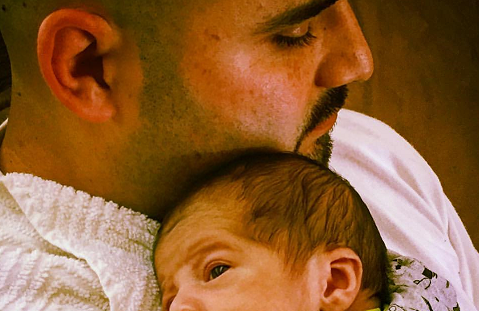What happens to workers when they need to recover from a car accident, or when their parent has a heart attack? How can they keep food on the table if their child is in the hospital? What choices do they have to make?
In the United States, struggling workers have been looking for answers to these questions for decades. In 2002, with the passage of the first paid family leave bill in California, they began to find them. Today, thanks to workers, advocates and legislators across the country, almost 50 million workers benefit from time to care for themselves and their loved ones through short-term flus and long-term cancer treatments. The nearly 60 laws now on the books show that our country is starting to value our families at work — and on July 1, we’ll be celebrating those achievements on “Implementation Day.”

Danny Contreras is one worker whose family benefited from paid leave. Thanks to the law passed in California, he was able to take paid family leave twice to care for his wife and newborn children. Danny’s paid family leave let him bond with his children, and also gave him an opportunity to spend more time with his nine-year-old stepson.
Paid family leave and paid sick days consistently provide benefits to workers like Danny — both economic benefits and intangibles such as better relationships. When workers have access to paid leave, they are more likely to bond with their infant children and stay attached to the workforce.
For Erin Schmitz, access to paid sick days meant that she no longer needed to work through the excruciating pain of endometriosis. Her job in Portland, Oregon, would be safe when she woke up in terrible pain, and so would her paycheck. After years of working while ill, Erin said, waking up sick after passing paid sick days was like waking from a bad dream. “I couldn’t stand up, and I had a moment of panic, thinking, ‘What am I going to do?’ But then I realized, I don’t have to go to work. We’d won paid sick days. I could lay down and rest. That alone made me feel better.”
Today, 13 locations across the country will celebrate the anniversary of their paid time to care laws taking effect. In Washington, DC, employers will begin paying into the new paid family and medical leave program for the first time. And in New Jersey, more workers will be able to take paid family leave without being at risk of losing their jobs.
In honor of these anniversaries, Family Values @ Work, a national network of 27 coalitions supporting laws that value families at work, marks July 1 of each year as Implementation Day. Implementation Day is an opportunity to recognize laws that have taken effect and highlight the wins of the previous year and how the success of these laws paves the way towards better policies and national legislation.
Perhaps one of the best examples of creating better policies comes from New Jersey, where legislators voted to expand their successful paid family leave law. In addition to extended job protection beginning July 1, New Jersey workers can keep more of their wages while on leave. New Jersey’s expansion made them the first state to include everyone who is family — not just blood relatives — and to provide safe time through paid family leave for workers dealing with domestic or sexual violence.
The achievements in New Jersey supported work in other states. In Connecticut, our coalition worked with legislators to pass a strong paid family leave policy with safe time, making them the second state to do so! Oregon is poised to pass paid family leave legislation in 2019, while Colorado and Minnesota continue to move stronger policies than ever before.
In Massachusetts and Washington, where paid family leave laws passed but haven’t taken effect, FV@W members are leading the way when it comes to outreach and implementation of the new laws. In particular, Washington’s work to develop a transparent and collaborative partnership before government and the community can serve as a model for laws across the country.
When we look at paid sick and safe days, we see equal momentum. Maine and Nevada passed paid sick days laws in their states, while In Texas, Dallas became the third city in the state to pass a paid sick days law.
This year on Implementation Day, we will be celebrating these laws with our coalitions and with more than 20 national and local organizations who know the value of paid leave and paid sick days. We’ll also continue building the case for laws that stretch beyond what already exists and ensure that every worker can care for the people they love most.